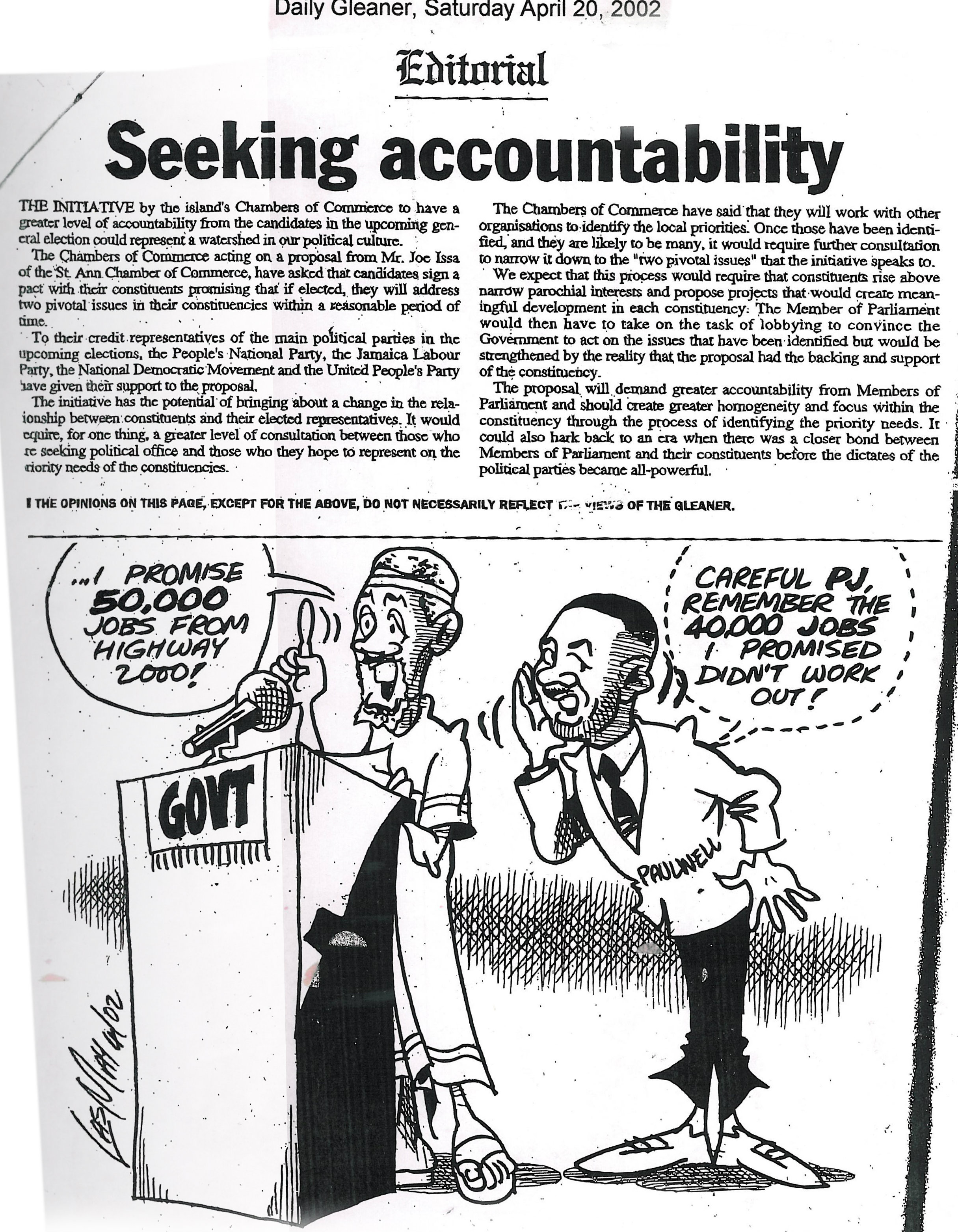The initiative by the island’s Chamber of Commerce to have a greater level of accountability from the candidates in the upcoming general election could represent a watershed in our political culture.
The Chambers of Commerce acting on a proposal from Mr. Joe Issa of the St. Ann Chamber of Commerce, have asked that candidates sign a pact with their constituents promising that if elected, they will address two pivotal issues in their constituencies within a reasonable period of time.

To their credit representatives of the main political parties in the upcoming elections, the People’s National Party, the Jamaica Labour Party, the National Democratic Movement and the United People’s Party have given their support to the proposal.
The initiative has the potential of bringing about a change in the relationship between constituents and their elected representatives. It would require, for one thing, a greater level of consultation between those who are seeking political office and those who they hope to represent on the priority needs of the constituencies.
The Chambers of Commerce have said that the will work with other organisations to identify the local priorities. Once those have been identified, and they are likely to be many, it would require further consultation to narrow it down to the “two pivotal issues” that the initiative speaks to.
We expect that this process would require that constituents rise above narrow parochial interests and propose projects that would create meaningful development in each constituency. The Member of Parliament would then have to take on the task of lobbying to convince the Government to act on the issues that have been identified but would be strengthened by the reality that the proposal had the backing and support of the constituency.
The proposal will demand greater accountability from Members of Parliament and should create greater homogeneity and focus within the constituency through the process of identifying priority needs. It could also hark back to an era when there was a closer bond between Members of Parliament and their constituents before the dictates of the political parties became all-powerful.
Source: The Gleaner






